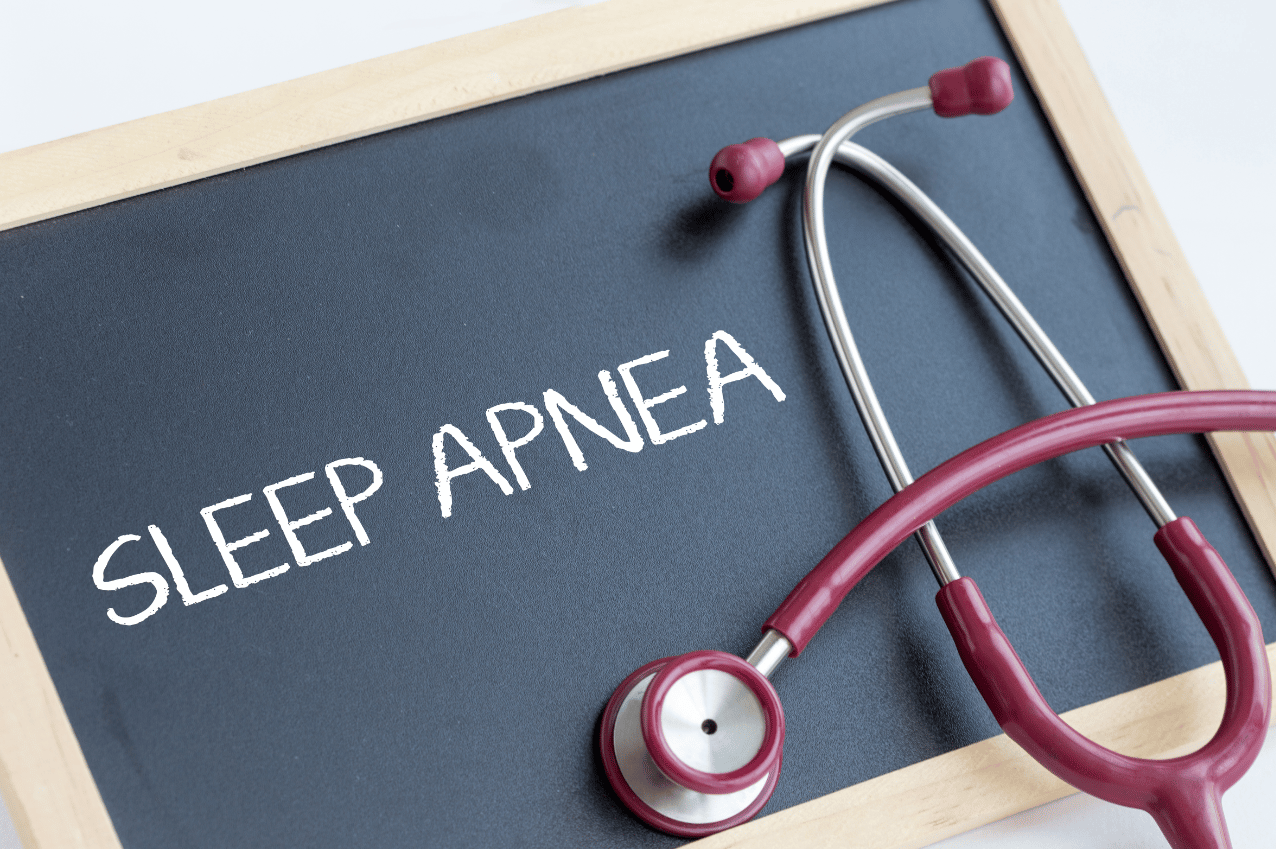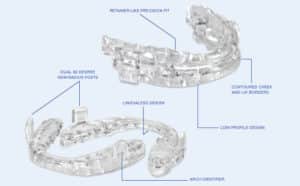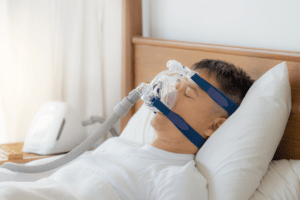How Can Your Dentist Help Stop Obstructive Sleep Apnea?


Getting a good night’s sleep helps you look, feel, and perform your best, both mentally and physically. On the other hand, sleep problems can negatively affect your health and quality of life. Obstructive sleep apnea (OSA) is one of the most common sleep problems, with nearly 30 million American adults diagnosed with this condition.
Sleep apnea causes you to stop breathing hundreds of time a night, sometimes only for a few seconds, but other times for a minute longer. This happens because the muscles at the back of your mouth relax when you sleep, causing soft tissues to collapse and block your airway.
When seeking treatment for sleep apnea, many patients turn to their doctor. This is a good way to receive a diagnosis for OSA, but a dentist trained in dental sleep medicine may be the best place to turn for treatment.
What is dental sleep medicine?
Dental sleep medicine is a branch of dentistry that focuses on treating breathing disorders that occur during sleep, such as obstructive sleep apnea. Dentists and sleep doctors work hand-in-hand to identify the best treatments for their patients.
Besides a CPAP machine, what other treatments are available for obstructive sleep apnea?
If your doctor has diagnosed you with OSA, he or she may recommend wearing a continuous positive airway pressure (CPAP) machine when you sleep. While this is an effective method for treating sleep apnea, many people don’t tolerate wearing the mask or hearing a continuously running machine while they sleep. Others simply prefer to try an alternative treatment.
Oral appliance therapy is an effective option for treating mild to moderate obstructive sleep apnea. It involves wearing a mouthguard-like device while you sleep to hold your jaw in a forward position that helps maintain an open airway. The device is made of lightweight material and custom-fitted for your mouth.
What are the benefits of oral appliances?
 CPAP machines have already proven to be an effective treatment for even the most severe cases of sleep apnea, so you might wonder why you should consider oral appliance therapy. Here are the benefits of this treatment:
CPAP machines have already proven to be an effective treatment for even the most severe cases of sleep apnea, so you might wonder why you should consider oral appliance therapy. Here are the benefits of this treatment:
Wearing an oral appliance is more comfortable than being hooked up to a noisy machine, making it easier to sleep.
An oral appliance is tiny and portable, making it convenient for travel. Plus, it doesn’t require electricity, so you can use it anywhere.
Oral appliance therapy is safe and effective for mild to moderate sleep apnea cases.
An oral appliance is long-lasting and easy to clean. Unlike a CPAP machine, it doesn’t have moveable or consumable parts that must be repaired and replaced.
Does insurance cover oral appliance therapy?
Most private insurance plans and Medicare policies cover oral appliance therapy; just remember to review your coverage to make sure. Be prepared to show specific documentation from your doctor and dentist to ensure adequate coverage.
Note that oral appliance therapy is covered by health insurance, not dental insurance. This is because obstructive sleep apnea is a medical condition that simply happens to require a dentist’s help for effective treatment.
How do I begin oral appliance therapy for obstructive sleep apnea?
The first step is to find a dentist educated in dental sleep medicine. This ensures you’ll receive safe, quality treatment for your sleep-related breathing disorder.
After finding a provider, you’ll be screened for sleep apnea. Your dentist may recommend receiving an official diagnosis from your doctor if you haven’t already. In fact, after discussing your options, you and your doctor may determine that oral appliance therapy is the best option for you. Your doctor may then prescribe an oral appliance and refer you to a qualified dentist.
Having your oral appliance made is a straightforward process. First, either digital or physical impressions are made of your teeth. Then, the models are sent to a lab where a custom device is fabricated. At a second dentist appointment, you have the device fitted and adjusted to ensure the best comfort and performance. Follow-ups with your doctor and dentist help to ensure the therapy is working to treat your condition.
Our Boulder dentist can help stop obstructive sleep apnea
If you exhibit signs of OSA—including loud snoring, gasping, or choking sounds during sleep and excessive tiredness during the day, even after getting plenty of sleep—we recommend seeing a dentist who practices dental sleep medicine. Dr. Ania in Boulder, CO is one such dentist.
We test our patients for sleep apnea with an at-home sleep test. Then, we create custom sleep apnea oral devices that have proven very successful. Many people don’t tolerate CPAP therapy for many reasons, and wearing an oral device is a great alternative for mild to moderate cases.
Let us help you get a better night’s sleep! Call 303-443-0998 to schedule a consultation with Dr. Ania and begin your sleep apnea treatment today.



